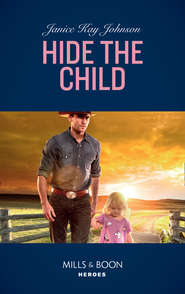По всем вопросам обращайтесь на: info@litportal.ru
(©) 2003-2024.
✖
Christmas Presents and Past
Автор
Год написания книги
2018
Настройки чтения
Размер шрифта
Высота строк
Поля
“Let me say my piece. You’re seventeen…. Yes, almost eighteen.” She waited while Dinah started to protest what she knew was coming—you’re too young to make smart decisions for yourself, blah, blah, blah— then subsided. Mom started just as she’d anticipated. “We all think we know what’s best when we’re your age, but most of us find out somewhere along the way that we were wrong.”
There was something just a little sad in her mother’s voice that made Dinah ask tentatively, “Did you?”
“If you mean, do I wish I hadn’t married your father, no.” She laughed a little. “Despite his occasional bullheadedness. But I hate my job, and I hate knowing I could do better than the men I work for. So yes. I was sure at eighteen that all I wanted to do was get married and have a family. Now I wish I’d gotten an education first. I wish I’d majored in business. I’m thinking about starting to take some classes.”
“Really?” Dinah asked in surprise. She was ashamed to realize that her mother’s grumbles about her job had just been background noise to her. She hadn’t really listened. “That’s great!” she said. “Is Daddy okay with it?”
“He’s the one who’s been encouraging me. It’s taken me a few years to see he’s right.”
Dinah blinked. “Daddy?” Her father was willing to surrender some of his creature comforts, maybe even some income if Mom cut back to part-time, so that she could find more personal satisfaction in what she did?
Seeing how stunned Dinah looked, her mother shook her head. “You don’t listen to him any more than he does to you. You’re both bullheaded.” She hesitated. “Whether you’re willing to see it or not, the truth is, he wants what’s best for you. He’s just convinced he knows better than you what that is.”
Dinah grimaced. “I noticed.”
“You and Will both talk as if college is like being on a chain gang. Everybody I know who went thinks those four years were the best years of their lives.”
“But I don’t want to be a teacher, or…or…”
“Most of what you learn in college isn’t vocational. Would it be so awful to develop analytical skills, or become a better writer? Maybe more informed about world events?”
“I’ve been in school for thirteen years.”
“College isn’t like high school. And there’s no reason, even if you go to a state school, you couldn’t live in the dorm. You’d be independent, without actually having to pay the bills or cook and clean.”
She’d thought her parents would expect her to commute to classes to save money. That it would be another four years just like high school.
Still…it would be four more years.
She said slowly, “What if we made a deal? What if I agree to go to college for two years, and then if I’m still sure I want to go to culinary school instead, you and Daddy would let me do that?”
There was a moment of silence.
Excited by her idea, she continued, “I’d be twenty then, not eighteen. You’d been married a whole year by the time you were twenty. So Daddy couldn’t argue that I wasn’t ready to decide what I wanted to do with my life.”
“No, he couldn’t, could he?” her mother murmured.
“Doesn’t that seem fair?” She held her breath, waiting for an answer.
“Yes.” Her mother nodded, at first a small bob of her head, then a more decisive dip. “Yes. I’ll talk to your father. But it sounds like a deal to me.”
Dinah wrote to Will about the situation.
Daddy agreed, so I’ve applied to both San Francisco State and the University of San Francisco. My parents winced at that, because tuition is so high at private colleges, but I’ve applied for a bunch of scholarships, too. At least I know getting into S.F. State won’t be a problem. I don’t want to have to go farther away, even to Davis or Chico. I want to be here once you come home.
It was a whole month before she heard back from him, and it didn’t sound as if he’d gotten that letter from her yet, because he referred only to things she’d said earlier.
Flying in, I thought Vietnam was beautiful. Lush and green, laced with brown rivers, these perfect squares of rice paddies and rubber plantations laid out like checkerboards. But, man, it’s hot here. By the time we carried our duffel bags across the tarmac to the truck, we were all dripping wet, it’s that humid. And it stinks. I mean, the whole country, as far as I can tell. I keep asking guys who’ve been here for a while, and they say it’s untreated sewage and rotting vegetation and who the hell knows what else, but this one guy who is on his third tour in-country says it’s death. Bodies rotting. Seems to me he’s enjoying trying to scare us, like an older camper telling ghost stories, but it made my hair stand on end, I gotta tell you.
Dinah called Will’s mother right away to tell her she’d gotten a letter, but when she read it out loud, she left out that last part. She skipped right from “who the hell knows what else” to his next paragraph, where he told about landing at Bien Hoa and riding in a convoy past shacks of corrugated tin and skinny children chasing the trucks and begging.
Man, people tell me not to wish for the rainy season, but the dust has us dirty all the time right now. You couldn’t recognize me. The dirt here is red, and when you sweat—all the time—it sticks to you. I already feel like my skin is stained with it.
His letters for the next couple of months were like that. He described water buffalo, enormous beasts with rings in their noses. Even small children seemed to handle their family buffalo with ease, as if they were pets.
Although I don’t think the buffaloes like Americans. Every time I see one, it eyes me and snorts.
She laughed at that, and at his claim that the rats over there were as big as terriers. She didn’t laugh when he wrote about voracious mosquitoes or leeches or centipedes, but she kept thinking, As long as a few bug bites are the worst thing he has to worry about.
But she couldn’t seem to forget that first letter he’d written from “in-country,” and two things he’d said.
When we got off the airplane, guys who were heading home were waiting to board. They looked so much older than us, even though they’d only been here a year. It was their eyes, I think. They looked as if they knew things I don’t want to know.
There was that, and then there was the smell.
It’s death.
After the things she saw on TV, she believed it.
After even a couple of months in ’Nam, Will felt himself changing. It wasn’t as bad here as it had been a year or two before, he knew that, but it was bad enough. Not for everyone—guys with any pull at all got themselves assigned to support and stayed put in Saigon or Cu Chi, where the living was good. There were officers’ clubs, enlisted clubs, swimming pools. Will had heard of one guy who was drafted, too, only somebody found out he had his lifeguard certification and now he was putting in his year as a lifeguard at a base swimming pool. Will spent his days guarding engineers sweeping the roads for mines, and his nights, after what sleep he could snatch, stumbling through the jungle and splashing through rice paddies on some kind of patrol looking for the enemy, scared the whole time. Where was the justice in that?
Being bitter wasn’t new. Having a good reason for it was. Lying on his cot trying to sleep but thinking about home instead, he was embarrassed about how much he’d resented his parents and for so little reason.
He was hardening. Not in ways he liked or was proud of, but he didn’t think he’d have survived if he’d stayed as naive as he’d been, or as affected by the sight of suffering and death. Man, even in Cu Chi, soldiers smoked weed right in front of God and their superiors, shot up heroin with little more discretion, refused orders and bought sex with local prostitutes for a couple of bucks. Yeah, Ma, life here is a little slice of America.
What bothered him most was that now he could look at dead bodies lying beside the road and feel nothing. He’d quit wondering what Vietnam had been like back before so many villages had been bombed or huge stretches of the landscape had been denuded by napalm. He’d discovered quickly that you didn’t want to get to be really good friends even with your fellow soldiers. There was an intense closeness, sure; when a helicopter dropped off six or seven of you somewhere in the darkness, man, you might as well all have been attached by umbilical cords. You breathed together, you listened together, you stuck together. Nobody was cocky at night. Charlie was better in the dark than American soldiers were. Nobody disputed that.
But the other guys got themselves killed sometimes, and Will found he couldn’t let himself care so much it paralyzed him.
Mines and booby traps were the big threats. If there were any big NVA concentrations out there, Will’s company never found them, though that was the stated goal of the nighttime forays. He was in a few firefights, where branches around his head exploded and he emptied the magazine of his M-16 into the woods where he saw answering flashes of fire from enemy weapons. But most of the deaths happened when someone stumbled over a trip wire or when the engineers missed a mine buried in the road that went off when the next truck rattled over it. The first time Will saw a guy get his legs blown off, he lost it. But it got so he was just so damn grateful he wasn’t the one to have put his foot wrong, he didn’t waste the energy mourning the guy who had. No, that didn’t make him proud.
One of the things that got to him was the fact that the U.S. was making no headway. Guys were dying, but for what? The U.S. never seemed to gain a foot of ground. The NVA melted away when American or South Vietnamese soldiers entered a village and reappeared as soon as they were gone. At first when he went out, he didn’t even know where he was going, but after a couple of months Will began to realize he was seeing the same stretches of river, the same rubber plantations, the same banana trees, over and over. They weren’t fighting a concrete war that was earning them anything to write home about. And nobody thought the South Vietnamese troops, to whom they were gradually handing over responsibility, were going to be able to hold back the North Vietnamese.
Then word came down: they were going into Cambodia. Everyone knew the Vietcong supply lines passed through Cambodia, and supposedly a sizeable chunk of the North Vietnamese Army lurked there. Will was scared but also exhilarated. Finally, they were going to do something meaningful.
On April 29th the combined U.S. and South Vietnamese force pushed across the border. The first camps Will’s platoon found were deserted. They felt like ghost towns. He had the uneasy feeling that eyes watched from the surrounding jungle.
They damn near stumbled over a camp hidden in thick bamboo and found pots still cooking over fires.
“Don’t touch anything!” the lieutenant reminded them sharply.
“Yeah, you think we’re stupid?” McAlister muttered. They’d been warned that everything would be booby-trapped.
Pretending not to hear, the lieutenant signaled them. “Let’s keep moving.”
The bamboo stirred as they started back into it. Will wouldn’t have wanted to be point. Even moving behind others in his platoon, he watched carefully where he put his feet.
The long whistle of incoming mortar gave them a split-second warning. Will threw himself flat onto the ground and scrabbled with his hands as if he could dig himself into the earth. He heard obscenities and prayers all around him and didn’t know if some of them were coming from him. Rounds shredded the bamboo above him. He heard grunts and screams but didn’t dare lift his head. Then the rat-a-tat of a machine gun firing, and Emilio Ramirez, the one guy he could see, jerked and flopped like Raggedy Andy, blood wetting his uniform and the ground.











